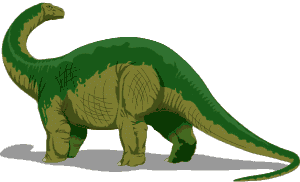1 - Weather conditions
Why take a look at the weather conditions in the days of Job? Well, it's the extremity of those conditions that loudly cries out for our attention.
Most scholars agree the land of Uz - the land where Job lived (see Job 1:1) - was situated between the Dead Sea and the Arabic desert. Somewhere near Seir or Edom. According my atlas this is a very dry and warm area. But reading Job gives another view. Of course there is told about hot periods and drought, i.g. Job 6:17-18, 14:11 en 30:3. We hear about dry and desolate ground (30:3). We understand how the sun is evaporating lakes and drying up rivers (14:11). We get the vivid picture of a brook, dried up by the heat and vanished (6:17). Caravans thought to find water there, but when they arrived they were disappointed (6:18-20).
Nothing strange so far. These are the typical ideas we have about the deserts in that area.
But where did the waters of the disappointing brooks came from? Job 6:16 explains:
- [Brooks] which are dark with ice, and where the snow hides itself.
So we find meltwater here, with drifting ice. Job did not only know about the heat and drought of the desert, snow and ice were also familiar to him (24:19). Job 37:10 and 38:30 are showing us frozen lakes (or perhaps even seas; the Hebrew word "tahoom" or "tahom" used in 38:30 for "the deep" can also mean "sea" or "ocean" - Strong nr. 08415):
- By the breath of God ice is given, and the broad waters are frozen fast.
The waters become hard like stone, and the face of the deep is frozen.
Of course the nights are cold in a desert, but because of the low humidity there is little precipitation. We won't expect snow and ice. But even rainfall was enormous in the days of Job. Consider Job 37:6 and 9:
- For to the snow he says, 'Fall on the earth'; and to the shower and the rain, 'Be strong.' From its chamber comes the whirlwind, and cold from the scattering winds.
Heavy thunder and lightning frigthened men. They were believed to come from God (Job 36:32-37:4):
- He covers his hands with the lightning, and commands it to strike the mark. Its crashing declares concerning him, who is jealous with anger against iniquity. At this also my heart trembles, and leaps out of its place. Hearken to the thunder of his voice and the rumbling that comes from his mouth. Under the whole heaven he lets it go, and his lightning to the corners of the earth. After it his voice roars; he thunders with his majestic voice and he does not restrain the lightnings when his voice is heard.
Dark clouds were drifting over the land of Uz. Lightning flashed across the sky (Job 38:34-35). Animals were looking for a shelter (37:8), but some men couldn't find a place to hide (24:7-8):
- Then the beasts go into their lairs, and remain in their dens.
They [the poor of the earth] lie all night naked, without clothing, and have no covering in the cold. They are wet with the rain of the mountains, and cling to the rock for want of shelter.
Talking about animals: Job mentions several beasts which don't live in Arabia anymore (see 30:29 and 39:1-21). Jackals, ostriches, lions, wild oxen, wild asses: they all left the land of Uz. But most curious are the descriptions of the Behemoth and the Leviathan (chapter 40 and 41). We are not using the names Behemoth and Leviathan anymore. We rather talk about Brontosaur and Mosasaur! Apparently these creatures were still alive in the days of Job.

Brontosaur. See Job 40 for a description.
What was going on in the days of Job? Why couldn't people hide for a thunderstorm? What caused this extreme weather conditions? Next page shows more information.
|